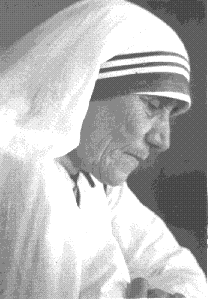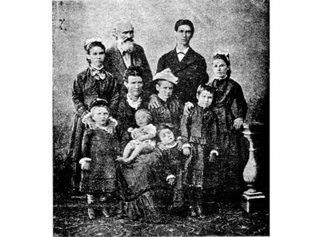
Aurreko artikulu batean Gernikako Arbola kantaren alderdi zehatz bati erreparatu nion. XIX. mendearen bukaerako beste egile bat aipatuko dut honako honetan. Felipe Arrese Beitia (1841-1909). Otxandiokoa zen eta “santugina” esaten zioten, bere ogibidea santuak edo irudi erlijiosoak egitea baitzen, profesionaltasunez egin ere. Jakina, ezagunago bilakatu zen Elizondon 1879an ospatu ziren Lore Jokoetan irabazle izan zelako bertan ospatu zen poesia lehiaketan. Zenbait urtez zeharo ospetsu egin zen lehiaketa hartan saritutako “Ama euskeriari azken agurrak” izeneko konposizioa.
Baina honako honetan, ez diot horri erreparatuko.
Gizakiaren bizitzari lotutako beste gertaera “arruntagori” ere arreta jarri zion Otxandiotar honek. Ezaguna denez, bizitzak loreak eta arantzak ditu. Felipe Arrese Beitiak biei eskaini zizkien poemak.
Esaterako, bere alabetako bat, Maria Pirlartxo, zortzi urte baino ez zituela hil zitzaion. Bere samina eta bere fedea “Agur ume” izeneko poeman isuri zituen “santugin” honek. Alabatxoaren heriotzak ez zuen Arrese Beitiaren bihotza itsutu eta Jainkoari edota beste bizitzari zabalik ageri da:
Bizi obea artu ebala fedeak diñost,
Bizi obea artute arren egin jat ill,
Bizi obea goian gozetan dagokit eta,
Ni barriz beian onen negarti, zelan nabill?
Arbola batek baña adar bat galdu ezkero
Agertzen badau sentimentua dabela artu,
Aitaren biotz onek biotza galdurikoan,
Zelan damurik egingo ez dau gaur agertu? […]
Oso hizkera ulerkorra eta herrikoia darabil. Ahapaldiak nahiko erregularak dira, nahiz eta, kasu honetan, bertsolaritzaren tankerakoan ez izan. Ez du poesia modernoaren eragin nabarmenik ageri, nolabaiteko joera erromantikoren batean ez bada (bizitzaren trajikotasuna zertzeladaren batean agertuz, adibidez). Antzematen da, bestalde, bere alabak etxean kristau giroa arnastu zuela, zeren hiltzeko zorian zegoela, bere azken hitzak “Osatu baño, zerura dot naiago” izan ei ziren, bere aitak ahapaldi batean islatu zuenez:
Zuri, zuri bai, alabatxoa entzun neutsun bai,
«Osatu baño zerura dot naiago»
Ez dakit nundik asmau zenduzan itz orrek baña
Niretzat gauza ezkuturen bat or badago.
Pentsatzekoa da bere gurasoak guztiz atsekabetuta geratu zirela bere alabatxoaren heriotzaz, baina, trantze horretatik tristura bat ageri den arren, kristau ikuspegia, gaur egun hainbat girotan ahaztua edota ikasi beharko genukeena agian, izugarri sendoa da:
Zure gorputza badago bere lurperatuta,
Egunen baten aterako da ain ederrik,
Azuzena ta lirio zuri zuriak baño
Zuriago ta iñon orbantxo bat bagerik.
Agur, umetxo, ikusi arte ortxe zeruan,
Agur, agur bai, gelditzen gara gu lurrean,
Agur, biotzak zerren eroan zeuk deuskuzuzan,
Agur ume, guk pozik ez dogu emen bean
Detaile txiki bat baino ez da hau, baina bere poemak irakurriz gero joera nagusi bat konfirmatzen duen detaile bat (beste askoren artean) dugu hauxe. Eta laikoa zen, pertsona arrunta, bere lanetik bizi zena, bere kezka kultural eta sozialak zituena. Herritarrek pertsona zintzotzat zuten, beti laguntzeko prest omen zegoen. Honekin zer adierazi nahi dut? Gure kultura osoak sustrai kristau sendoak dituela. Geure esku dago sustrai horiek XXI mende honetan ere elikatzea, bihar-etzi, arantzekin batera, loreak eta fruituak izan ditzagun.




 Datorren urriaren 28an, larunbatean, Hirukidek Gasteizko Europa Biltzar-Jauregian Kide Ugariko Euskal Familien III. Biltzarra egingo du. Hirukiderentzat ekitaldi honek izango duen garrantzia azpimarratu nahi dugu, honekin, politikariei, komunikabideei eta oro har, jendeari, gure elkarteak eta gure eskariek gero eta indar handiagoa dutela erakutsi baitezakegu, baina horretarako, urriaren 28an zuek Europa Biltzar-Jauregira etor zaitezten behar dugu. Jardunaldian izena emateko gure web orrialdea
Datorren urriaren 28an, larunbatean, Hirukidek Gasteizko Europa Biltzar-Jauregian Kide Ugariko Euskal Familien III. Biltzarra egingo du. Hirukiderentzat ekitaldi honek izango duen garrantzia azpimarratu nahi dugu, honekin, politikariei, komunikabideei eta oro har, jendeari, gure elkarteak eta gure eskariek gero eta indar handiagoa dutela erakutsi baitezakegu, baina horretarako, urriaren 28an zuek Europa Biltzar-Jauregira etor zaitezten behar dugu. Jardunaldian izena emateko gure web orrialdea 


 Duela urte bi, Seatlle-tik Washinton estatura, hau da, AEBetako Ipar Mendebaldera, aldatu zen Raj Natarajan bere familiarekin batera. Egin zuen lehenengo gauza neskentzako eskola bat bilatzea izan zen, bere bi alabentzako eskola egoki bat, hain zuzen. (DNA, Daily News and Analysis,
Duela urte bi, Seatlle-tik Washinton estatura, hau da, AEBetako Ipar Mendebaldera, aldatu zen Raj Natarajan bere familiarekin batera. Egin zuen lehenengo gauza neskentzako eskola bat bilatzea izan zen, bere bi alabentzako eskola egoki bat, hain zuzen. (DNA, Daily News and Analysis,